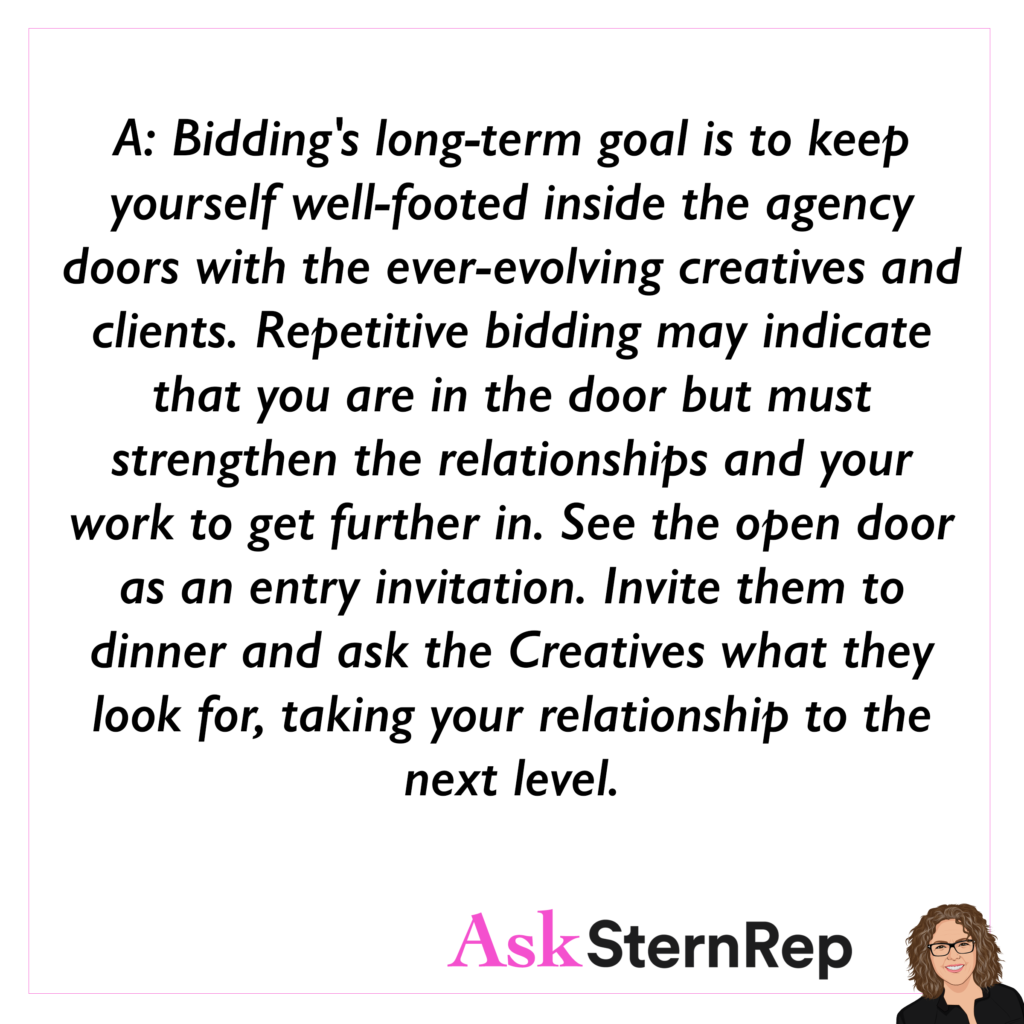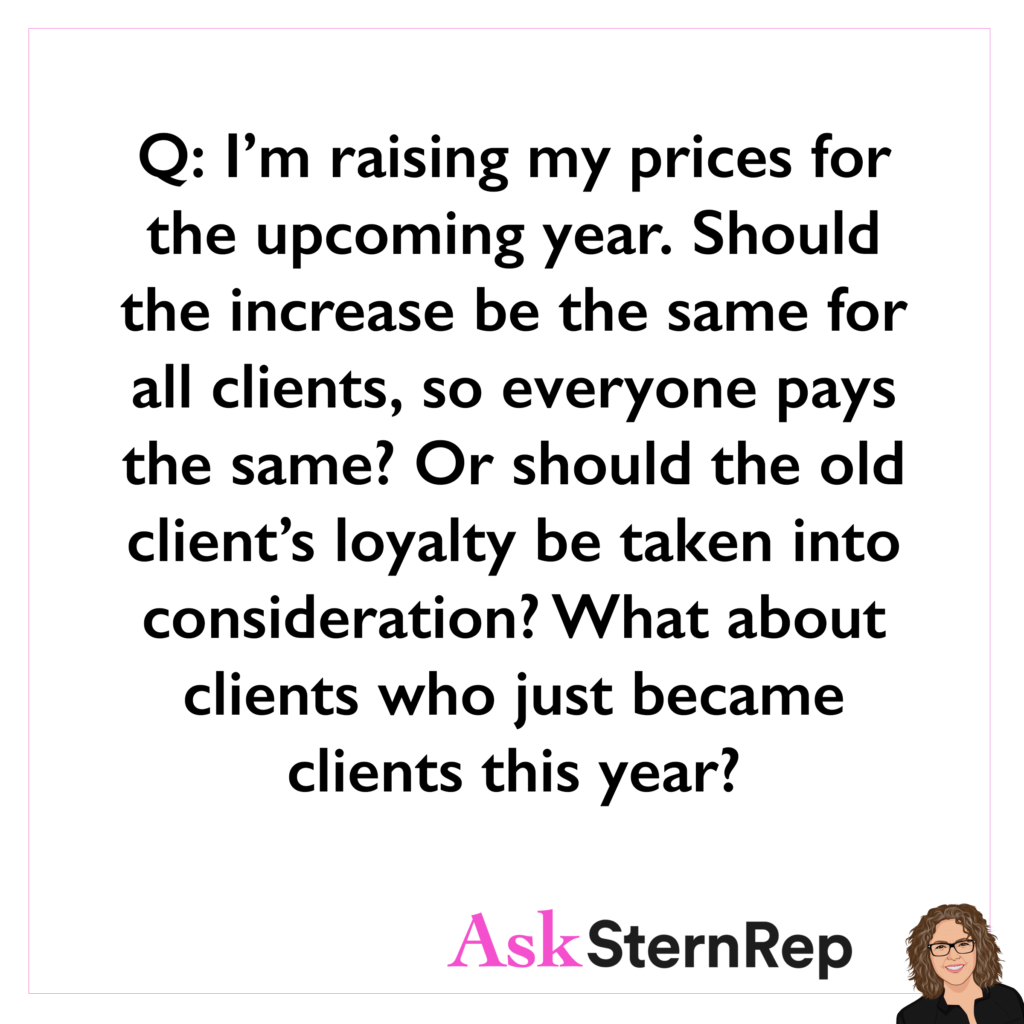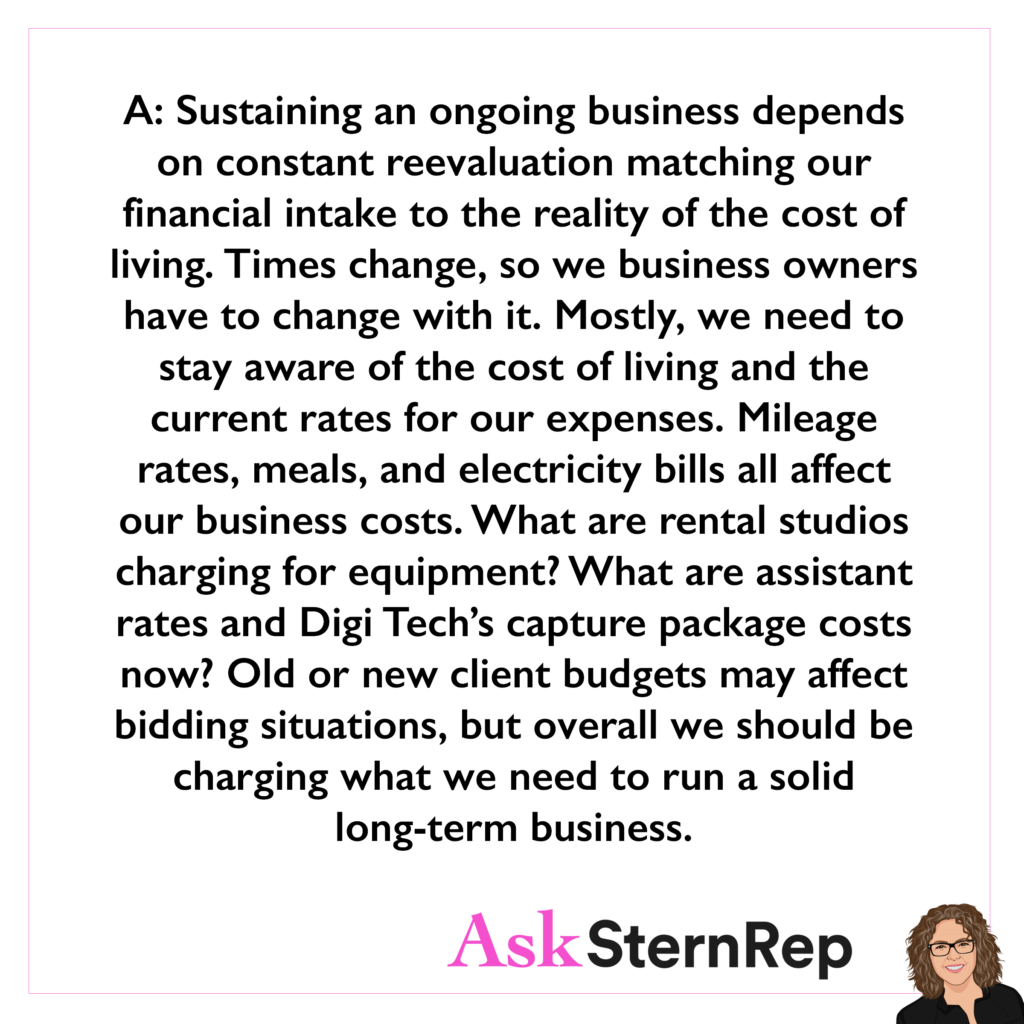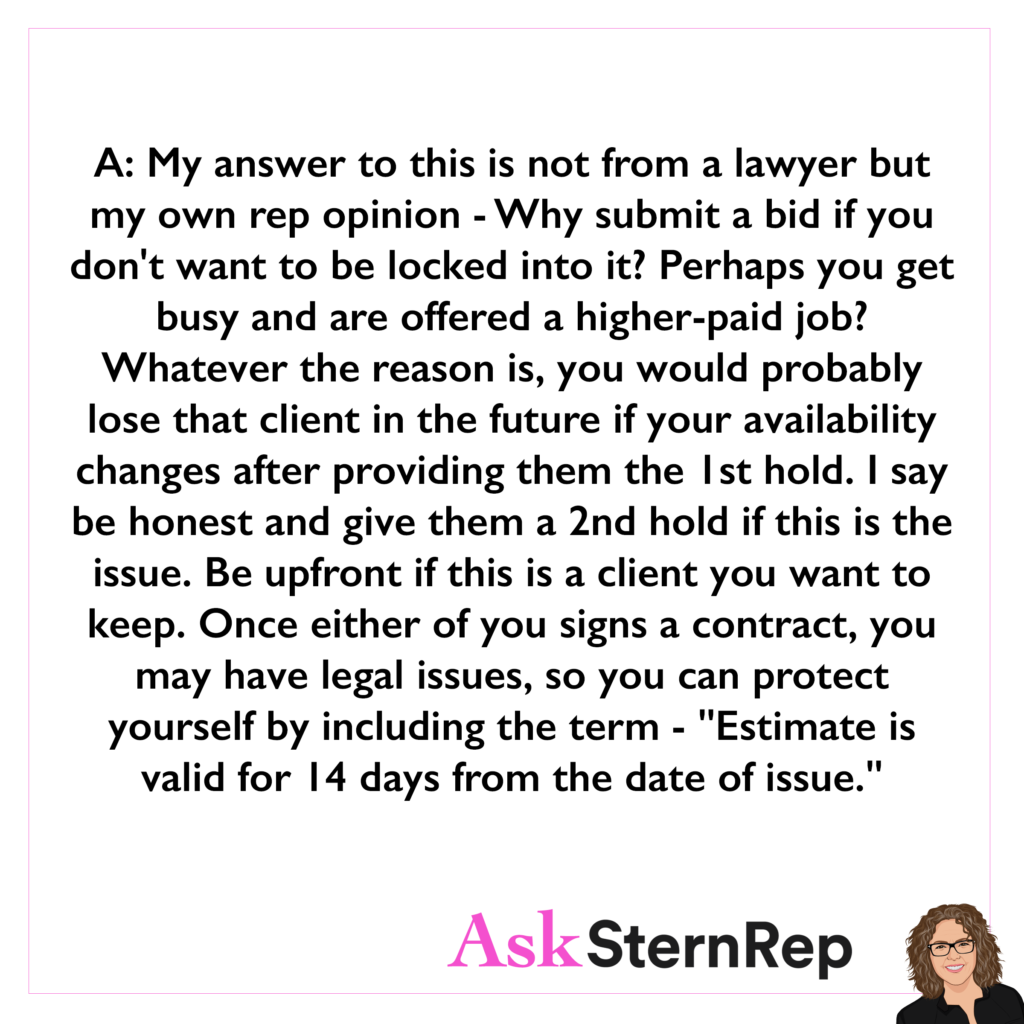

Q:
An international agency with a household name client has reached out to me to bid on five separate occasions to do a grueling bidding/treatment process, and each time I didn’t get the job for different reasons. How many times do you bid with an agency before you are to believe that they are only collecting a third or fifth bid from you?
A:
Bidding’s long-term goal is to keep yourself well-footed inside the agency doors with the ever-evolving creatives and clients. Repetitive bidding may indicate that you are in the door but must strengthen the relationships and your work to get further in. See the open door as an entry invitation. Invite them to dinner and ask the Creatives what they look for, taking your relationship to the next level.




